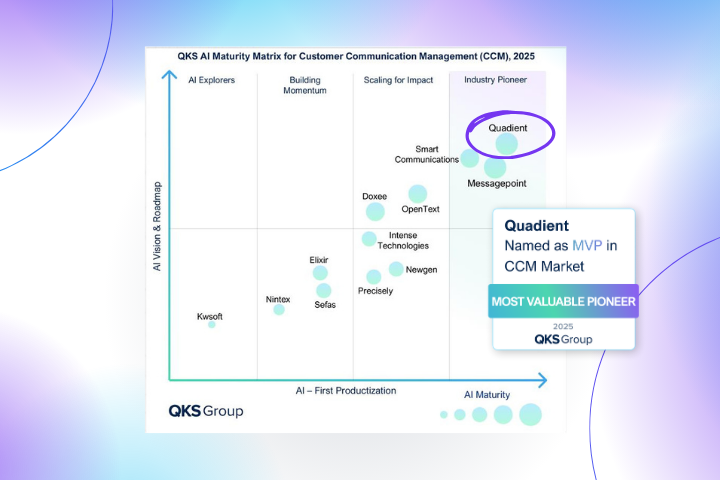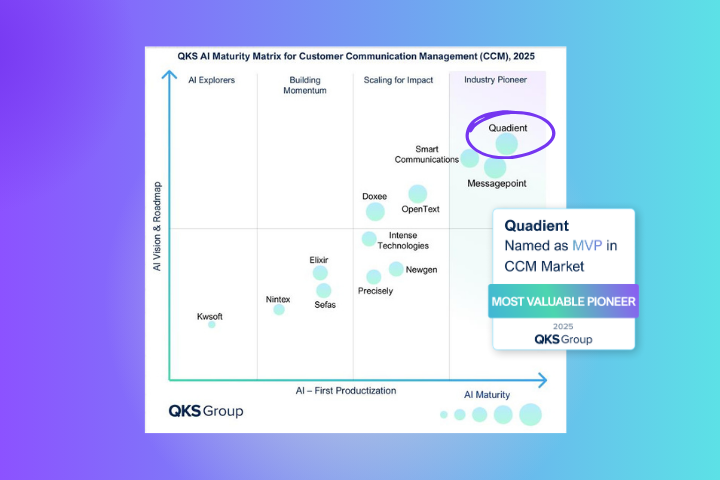
In Health and Human Services (HHS), compliance is not optional. It is essential for safeguarding federal and state funding, protecting sensitive client data, and ensuring equitable access to benefits for those who need them most. Agencies are tasked with delivering programs like Medicaid, SNAP, TANF, and Child Welfare under strict regulatory requirements. Yet many still rely on fragmented communication systems that vary by program, department, or even individual caseworker. These silos create gaps that put compliance at risk, cause inconsistent messaging, and frustrate clients who rely on clear and timely information.
The Compliance Risks of Fragmented Communication
When agencies operate with disconnected communication tools and processes, the risks extend beyond inefficiency. Siloed systems make it difficult to ensure that all communications meet federal and state compliance requirements. For example, an outdated letter template in one program may conflict with new eligibility rules, or clients may receive inconsistent instructions depending on the channel or department they interact with.
Fragmentation also increases the risk of data errors and breaches. Without centralized control, personal information can be mishandled or delivered to the wrong party. Inconsistent records make it harder to provide audit trails and respond to oversight requests, both of which are essential for maintaining funding and accountability. For clients, these gaps translate into confusion, delays in benefits, and reduced trust in the agencies meant to support them.
Why Unified Client Communications Are the Solution
A unified communication strategy ensures that all information shared with clients is accurate, consistent, and compliant. By streamlining how information flows across programs, agencies reduce errors and make it easier to demonstrate compliance during audits. Centralizing communications also makes it possible to apply consistent messaging standards that ensure clients receive the same information regardless of the program or channel.
The benefits of unification extend far beyond compliance. Staff members spend less time correcting errors or reconciling inconsistent records, which improves efficiency. Clients benefit from clear, timely, and coordinated messages that reduce confusion and improve engagement. In short, a unified approach helps agencies meet regulatory requirements while delivering a better experience for the people they serve.
The Role of Modern Communication Management Solutions
Modern Customer Communications Management (CCM) solutions provide the tools agencies need to achieve this level of consistency and control. By centralizing communication management, CCM platforms allow agencies to create a single source of truth for all client-facing messages. This eliminates the need for program-specific templates or manual updates that often lead to compliance risks.
CCM solutions can also ensure communications are delivered through multiple channels, including email, text, portals, and print, all from one platform. Omnichannel capability ensures that clients receive timely updates through the channels they prefer, improving engagement and compliance with program requirements. Automated compliance checks and audit trails further reduce risk by ensuring all messages meet current regulations and can be tracked for accountability.
For staff, modern CCM reduces reliance on manual processes and IT intervention. Messages can be updated and delivered quickly in response to evolving regulations, which keeps agencies agile in a constantly changing environment.
Inspire Evolve: A Unified Platform for Compliance and Engagement
Quadient’s Inspire Evolve is a high-performance SaaS CCM solution built to address the unique challenges faced by HHS agencies. Inspire Evolve provides centralized control over content, ensuring all communications align with compliance requirements and organizational standards. Its flexibility allows agencies to adapt quickly to regulatory changes, while omnichannel delivery ensures clients receive accurate and consistent updates.
Inspire Evolve also boosts efficiency by automating workflows and simplifying message creation. Business users can make updates directly without relying on IT teams, which speeds up communication and reduces the risk of distributing outdated or non-compliant content. Additionally, personalized, timely communication improves engagement and compliance, further reducing risks associated with fragmented communication.
Compliance Requires Modern, Unified Communications
Compliance risks grow when agencies continue to rely on fragmented and outdated communication methods. In 2025, with funding, accountability, and client trust on the line, agencies cannot afford to leave communication to chance. By unifying client communications with the help of modern CCM solutions, agencies can ensure consistent compliance, improve efficiency, and deliver a better experience for both staff and clients.
Quadient’s Inspire Evolve equips agencies with the tools they need to modernize communication strategies, streamline compliance, and provide the transparency regulators demand. In a time of heightened scrutiny, unifying communications is not just a best practice. It is a necessity.







